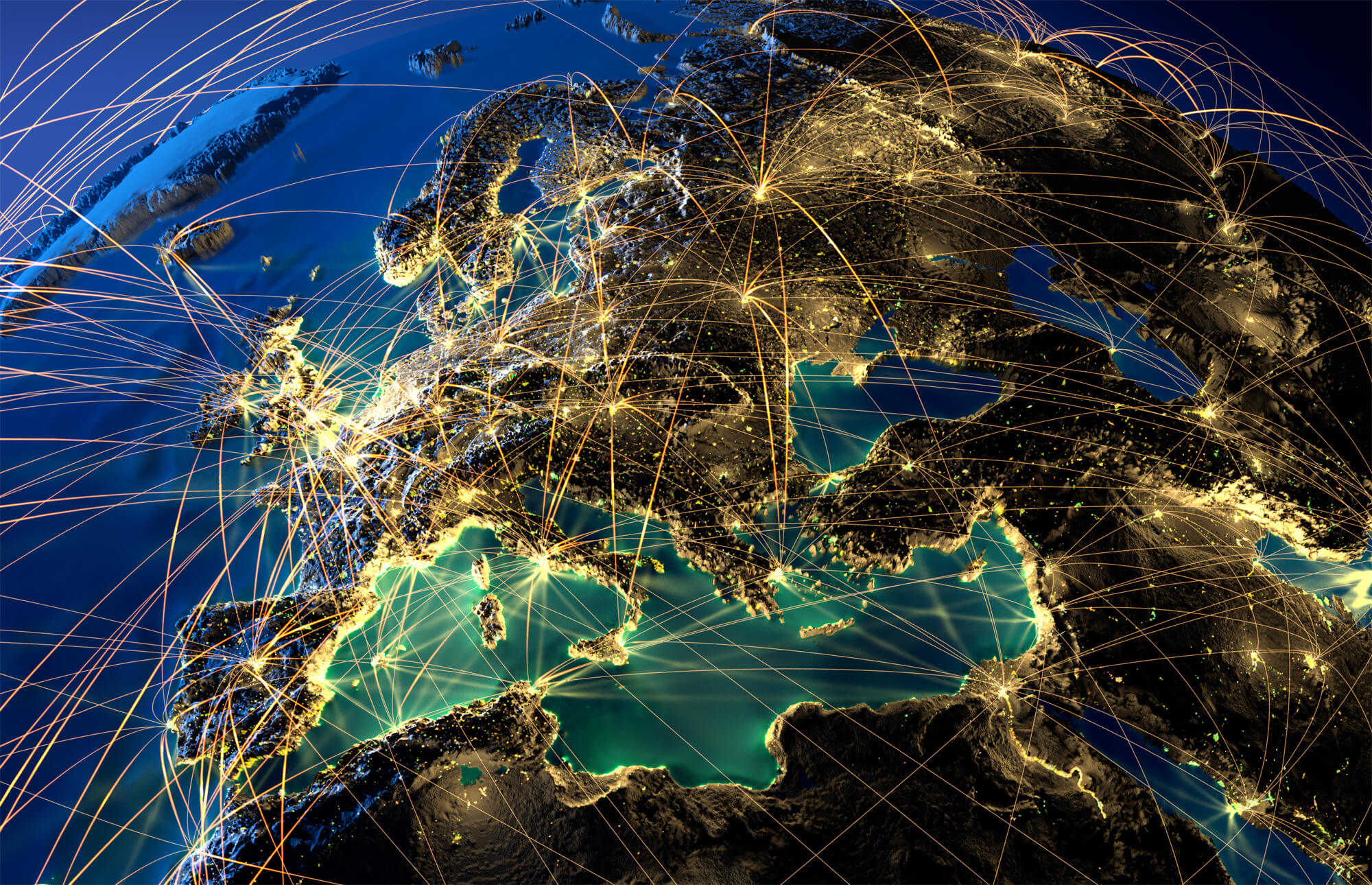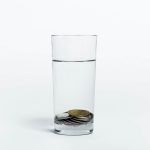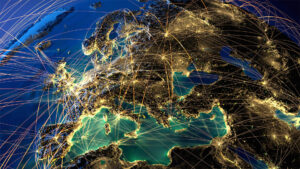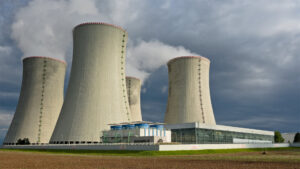Horrible views today up on the Isthmus Peak Trail in New Zealand.
Europe’s energy situation looked pretty dire last year as concerns began to mount over the impending winter season. Thankfully they dodged a bullet this year, but how many more bullets can the Europeans dodge?
The issue with Europe’s lucky streak is that none of what saved them can be replicated. Industrial demand has already plummeted, and maintaining these levels would have detrimental effects. Paying through their teeth for liquified natural gas isn’t sustainable. And unless the Europeans have Mother Nature on speed dial, they can’t expect another moderate winter like this year.
Unfortunately for all of us, current global energy supplies are likely the best they’ll be for years to come. So the Europeans need to say thanks for the extra time and head back to the drawing board to get out of this pickle.
Prefer to read the transcript of the video? Click here
Here at Zeihan On Geopolitics we select a single charity to sponsor. We have two criteria:
First, we look across the world and use our skill sets to identify where the needs are most acute. Second, we look for an institution with preexisting networks for both materials gathering and aid distribution. That way we know every cent of our donation is not simply going directly to where help is needed most, but our donations serve as a force multiplier for a system already in existence. Then we give what we can.
Today, our chosen charity is a group called Medshare, which provides emergency medical services to communities in need, with a very heavy emphasis on locations facing acute crises. Medshare operates right in the thick of it. Until future notice, every cent we earn from every book we sell in every format through every retailer is going to Medshare’s Ukraine fund.
And then there’s you.
Our newsletters and videologues are not only free, they will always be free. We also will never share your contact information with anyone. All we ask is that if you find one of our releases in any way useful, that you make a donation to Medshare. Over one third of Ukraine’s pre-war population has either been forced from their homes, kidnapped and shipped to Russia, or is trying to survive in occupied lands. This is our way to help who we can. Please, join us.
CLICK HERE TO SUPPORT MEDSHARE’S UKRAINE FUND
CLICK HERE TO SUPPORT MEDSHARE’S EFFORTS GLOBALLY
TRANSCIPT
Hey everyone. Peter Zeihan here coming to you from New Zealand on the Isthmus Peak Trail just came down off the summit where it was a breezy, negative five degrees centigrade, complete with. What was that called again – grapple – grappling. And when that was no fun at all. Anyway, we found a nice spot with a backdrop here. I want to talk to you about what’s going on with energy in Europe now in the aftermath of the Ukraine war.
We all know that between damage to pipelines and boycotts and shut offs on the Russian side and war damage that the Europeans are using, a lot less natural gas from Russia. And Russia was their primary supplier providing the continent with about a quarter of the total natural gas. And in the case of Germany, specifically, over 40% coming from a single pipeline.
Now, for those of you who’ve been following me for a year, you know that I was really concerned that over the winter, natural gas was going to just not be available. Because if you look at historical trends when it comes to storage and pricing and usage…it looked pretty dire? And in fact, in the aftermath of Nord Stream being blown off back in September, we saw natural gas prices go up by a factor of five, six, seven. And at one point they were about $70 per thousand cubic feet. Apologies for those of you who speak metric. Most of my audience is American, blah blah blah. Anyway, but over the winter, prices have plummeted to historic lows.
Now three things have happened that have enabled that to occur and to prevent just a complete meltdown in Europe or freeze up, I guess.
Number one, the Europeans, especially the Germans, shut down most industrial demand. So they just stopped smelting aluminum and steel and stopped fabricating petrochemicals and fertilizers. That is something you can sustain, but only at the cost of absolutely massive damage to your economic system. This is more of a problem for Germany than the rest. I mean, it’s a problem for everybody. But for the Germans, the petrochemical systems that they use are fueled by natural gas and those petrochemical outputs then go to the base materials for their manufacturing sector. So by shutting this stuff down, they are now dependent upon intermediate products that come from a continent away which are not nearly as reliable and are much higher cost. So the capacity, the profitability, the sustainability of the entire German industrial model is now in severe doubt. And in the best case scenario, the Germans probably only have about two years left that they can operate like this, assuming nothing else goes wrong.
Second, the Europeans paid five, six, seven, eight, nine times the prices that they were paying before in order to tap natural gas and liquefied form. Now, natural gas is kind of hard to move. It’s a gas. You have to have a pipeline system that links production to transport, to distribution, to usage all at the same time, because storage is relatively expensive. And the Europeans were obviously dependent on the Russians for that. But if you have a lot of extra infrastructure here, you can at a point of export near a point of production. You can chill the stuff down, basically with a giant freezer tied -300 odd degrees and make natural gas an actual liquid and then ship the liquid like you would any other liquid, although specialized tanker. And then once you get it to the end destination and you can warm it back up, gassify and pump into your system per normal. And Europeans tapped the global market for that at a scale we have never seen the Europeans do before, and they paid through the teeth to do that. LNG on average costs about triple what the gas cost because of the costs of cooling and in transport and regasification. Excuse me, but it was either that or not have power. So the Europeans generally did that and that triggered a series of energy problems all around the world, especially in countries like Japan and Korea and Taiwan, who normally rely on LNG as their primary source of energy. So that was the second thing.
The third thing is they got really lucky. Temperatures for the last nine, ten weeks across all of Europe have been 20 to 30 degrees above historical average. It has been the warmest winter on record. And in that sort of environment, demand for natural gas, for heating just hasn’t been as robust as it normally is.
Now, the problem for the Europeans is none of these things are really replicable. I mean, you can’t count on Mother Nature being that nice. More than one year in a row. The Russian supplies that are piped aren’t coming back this summer, which is normally when the Europeans would refill their stocks. So the only way that they can refill them is to go back to the international market and tap even more LNG. But it takes 5 to 7 years to build an LNG liquefaction facility. So global supplies are as good as they’re going to get for the appreciable future and they could keep all of their industry offline in order to reduce demand. That might be their only option, but that comes as a critical economic cost over the long term, not just in terms of competitiveness, but the very existence of some of these heavy manufacturing sectors.
So no good solutions. The Europeans dodged several bullets this year, and they should consider themselves very, very lucky. But we are only at the beginning of a multi-year transition to what is next. And the Europeans were simply fortunate that they have a little bit more time to work on other things.
Oh, yeah. One more thing that helped the Europeans out. If you remember back to November, December and January, that’s when the Chinese were imploding over COVID. We still don’t have good numbers, but assuming that the COVID strain that the Chinese were dealing with matches what the anti-vaxxers in the United States suggested was the actual authority rate for COVID. They lost a million people. And in that period, economic activity basically crashed. So for roughly three months, the Chinese were not importing a lot of liquefied natural gas themselves. At the same time, the Europeans desperately needed whatever molecules they could get. So we had a three month period where natural gas prices globally in the liquefied market was just weird and it benefited the Europeans the most you could possibly imagine…DONE.








